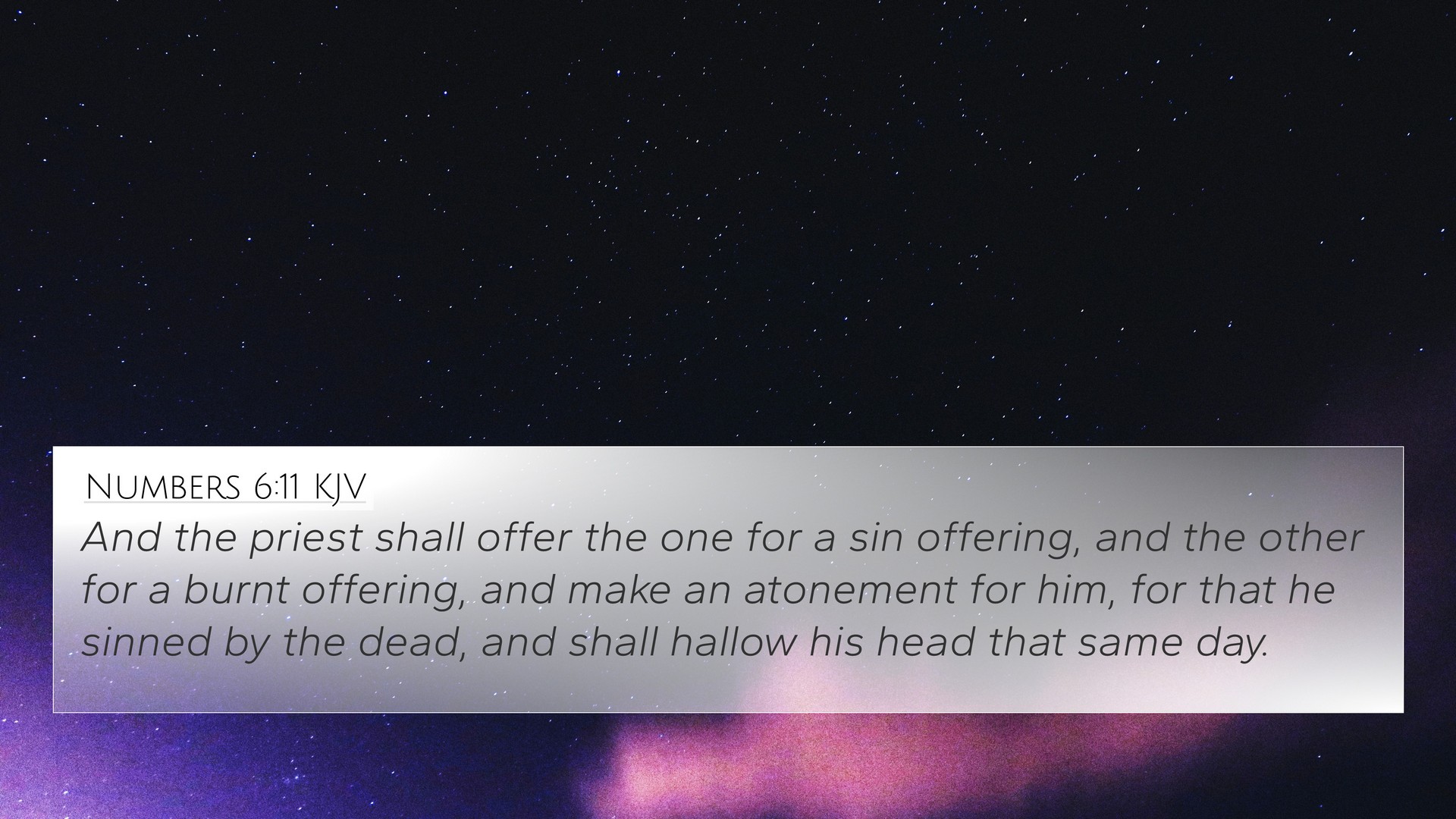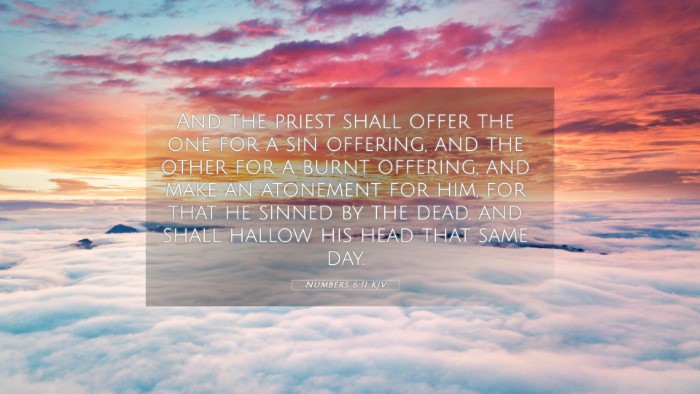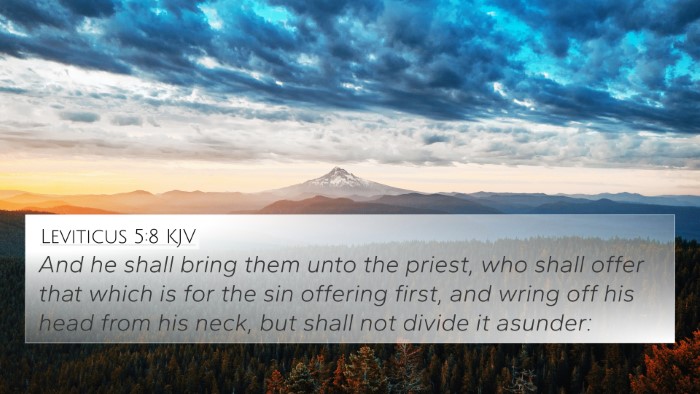Understanding Numbers 6:11
Verse: Numbers 6:11 - "And the priest shall offer the one for a sin offering, and the other for a burnt offering, and make an atonement for him, for that he sinned by the dead, and shall hollow his head that same day."
Summary of Meaning
This verse addresses the process of atonement for a Nazirite who has become unclean by contact with the dead. It highlights the role of the priest in mediating between the individual and God for forgiveness and purification. The offerings signify dedication and repentance, emphasizing the importance of maintaining holiness.
Commentary Insights
-
Matthew Henry:
Henry notes that this verse illustrates the procedure for restoring a Nazirite to purity after an unintentional sin. The sin offering represents acknowledgment of guilt, while the burnt offering signifies a desire for total commitment to God. The priest's role is crucial, as he acts as an intermediary who facilitates the reconciliation process.
-
Albert Barnes:
Barnes highlights that the dual offering — a sin offering and a burnt offering — symbolizes both the need for forgiveness and the expression of worship and devotion. This passage reflects the broader theme of atonement within the Mosaic Law, illustrating God's provision for sinners who seek reinstatement to a holy state.
-
Adam Clarke:
Clarke emphasizes the significance of the priest's ministry in the sacrificial system. He explains that the act of making atonement involves not just the offering itself but also the purification of the Nazirite to continue their dedication to God. Clarke connects this rite to the larger context of holiness and the seriousness of sin in the life of believers.
Related Bible Cross-References
- Leviticus 4:35: Discusses the priest's role in atonement procedures.
- Hebrews 7:27: Discusses Christ as the ultimate sacrifice.
- Numbers 6:5: The commitment of a Nazirite and the significance of the vow.
- Ezekiel 18:30: Encouragement towards repentance for restoring a right standing with God.
- Romans 12:1: Call to present ourselves as living sacrifices, linking to the idea of dedication.
- 1 Peter 1:16: Emphasis on holiness as a call for God's people, similar to the Nazirite's vow.
- 1 John 1:9: Assurance of forgiveness when confession of sins is made.
- James 4:8: The call to draw near to God, implying purification and closeness.
- Hebrews 9:22: The necessity of shedding blood for forgiveness within the sacrificial system.
- Exodus 30:10: Highlights the significance of atonement and sin offering in ceremonial law.
Connections and Themes
The themes interwoven in Numbers 6:11 include atonement, holiness, and the mediatory role of the priest. These themes resonate throughout the scriptural text:
- Atonement: Represented through sacrificial offerings, echoing the consequence of sin and the need for divine grace.
- Holiness: The call for personal purity reinforces the need for believers to remain set apart for God.
- Mediation: The priest’s intercession as a precursor to Christ's ultimate mediation between God and humanity.
The Importance of Cross-Referencing
Understanding the connections between Bible verses enriches our study and deepens our understanding of scripture:
- Identifying connections helps uncover the unified narrative of salvation throughout the Bible.
- Tools for Bible cross-referencing, like concordances, can enhance one’s study experience.
- By comparing verses, we can understand how Old Testament laws relate to New Testament teachings.
Conclusion
Numbers 6:11 serves as a crucial reminder of the seriousness of sin, the necessity for atonement, and the way God provides a path for restoration. The role of sacrifice and the priestly system set the stage for understanding Christ's work in the New Testament, exemplifying the continuity of God's plan for redemption. Through careful examination and cross-referencing, believers can uncover the depths of these truths, leading to a more profound faith.




